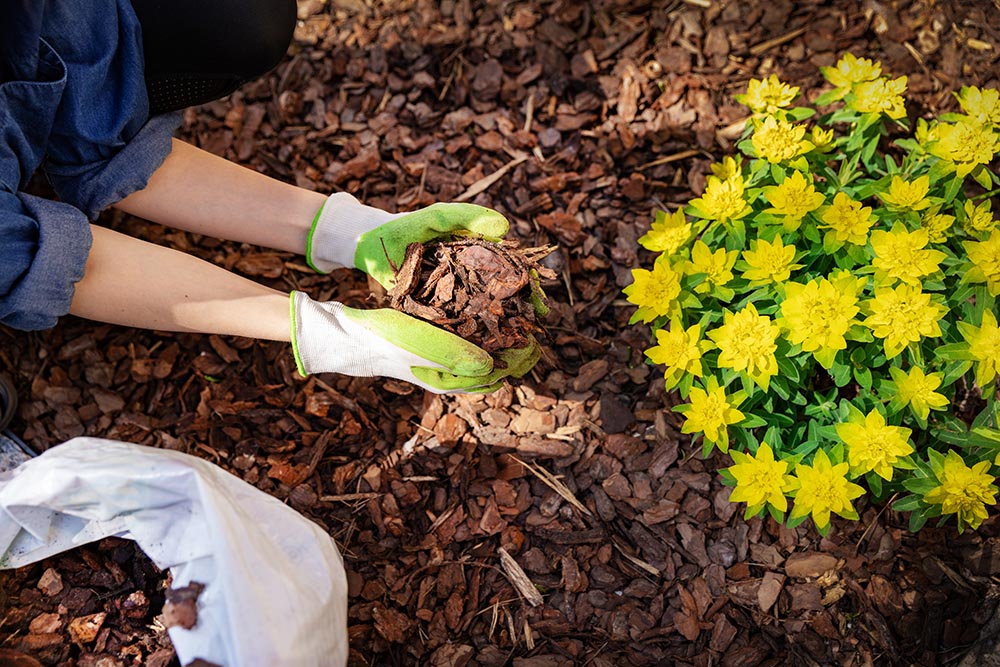Different Types of Mulch: Which Option is Right for Your Lawn?
Do you want to add some mulch to your lawn? If so, you may have all the tools ready to go, but have you ever taken the time to learn about the various types of mulch, along with their advantages or disadvantages?
Even if you don’t know this, now is the perfect time to learn about the different types of mulch and to figure out which one is best for your landscape.
Pros and Cons of the Different Types and Colors of Mulch
You likely know that mulch is beneficial, but is there a difference in the types and colors out there? Are there benefits to using organic versus inorganic, black rather than red, or wood chips instead of rocks? Keep reading to learn more.
Black vs. Brown vs. Red Mulch
There are some gardeners who have theories regarding the advantages offered by colored mulch. There are some vegetable growers who have said that red mulch will work great for some fruits, while others say black mulch can help to warm the soil up during the winter. There is even scientific research on this topic. A recent study showed that red mulch helped to grow more tomatoes while making strawberries that were sweeter than using black mulch.
With that being understood, there are some people who choose red, black, or brown mulch for the aesthetic appeal. Adding a bit of color to the garden beds will help to make your trees and plants pop while still offering an array of benefits.
Usually, when selecting any type of colored mulch, there are several things you need to know, which include:
- Colored mulch is dyed with chemicals and safe to use if the product is certified by the Mulch and Soil Council.
- Mulch dye may get on your hands, your pets, clothes, and even your driveway. Make sure you apply this with caution.
- Mulch colors may fade, which means the mulch must be replaced more often than mulch that is a natural color.
Inorganic vs. Organic Mulch
The type of mulch you use and its makeup matters. Organic mulch will break down in the soil over time, adding nutrients to it. However, inorganic mulch won’t dissolve, which means the quality of the soil will remain the same.
Both options have advantages, which can help you choose the right one.
Some of the things you need to know about organic mulches include:
- Will gradually convert into plant soil
- Preserve water in the soil
- Help conserve soil moisture
- Offer universal uses
- Come with a timestamp
For inorganic mulches, there are benefits too, which include:
- Used for aesthetics
- Fine for permanent plants
- Good at deterring the growth of weeds
- Time-saving and monetary perks
If you are trying to choose the right type of mulch, there are more than a few things to consider. In most cases, the right mulch for your needs is dependent on your lawn and the types of plants you have.
Are you looking for systematic year-round lawn treatment? Request an estimate from Kansas Turfmasters today!

